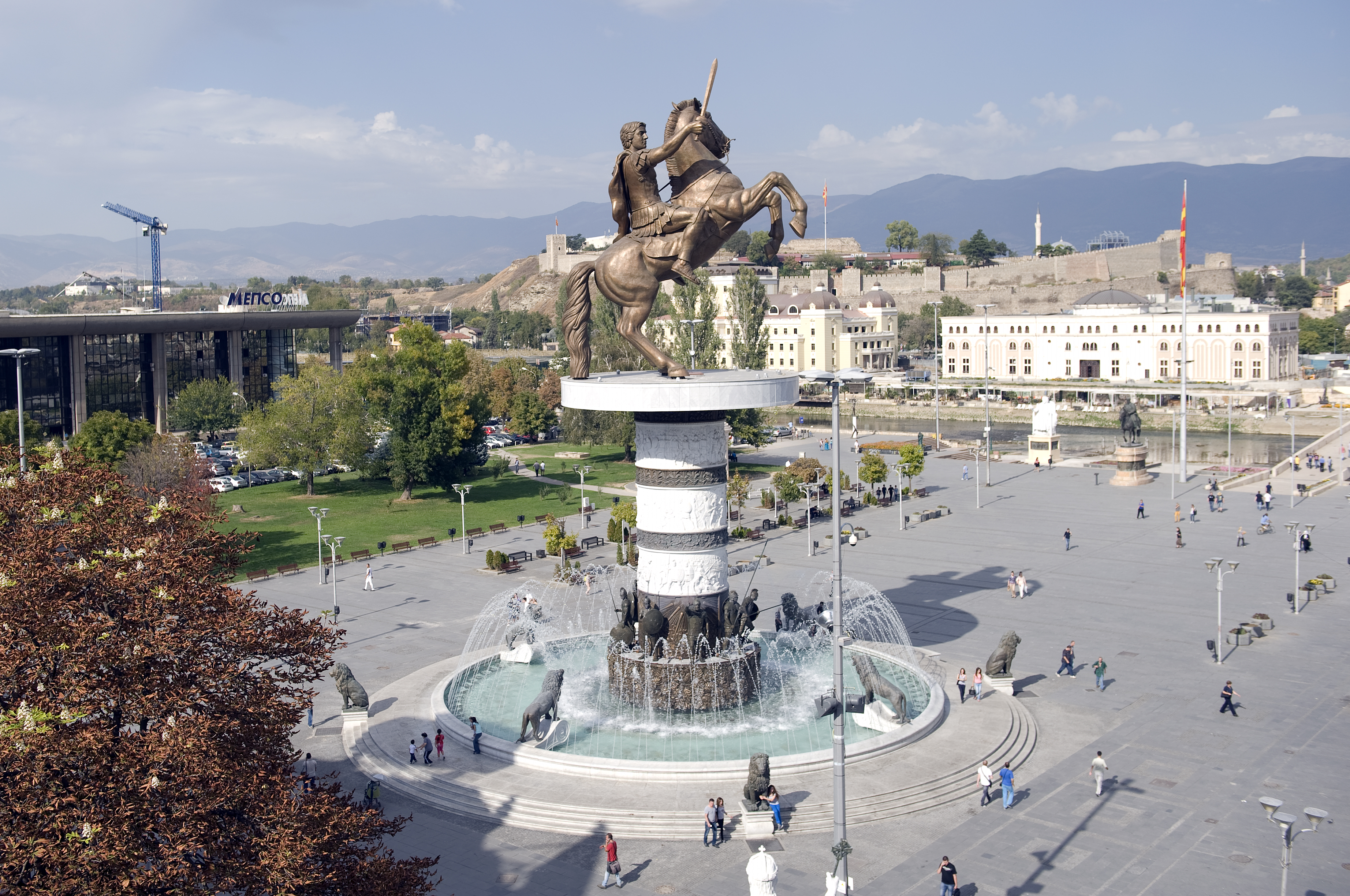Greece has spent 27 years trying to get Macedonia to change its name. They just reached a deal.


A decades-long dispute over the name of the tiny nation of Macedonia at last reached a peaceful conclusion Tuesday, with the Balkan nation agreeing with Greece to change its name to "North Macedonia." "We have a deal, I'm happy because we have a good deal which covers all the preconditions set by the Greek side," said Greek Prime Minister Alexis Tsipras.
The Greek government has spent 27 years fighting with Macedonia over the use of the name, which references ancient Macedonia and by association its famous leader, Alexander the Great. "Greece considers Macedonia a non-negotiable part of its history," explains NPR. "Its neighbor, meanwhile, considers Alexander — who incorporated its land into an empire that extended to India — part of local identity." Because of the reference to the conqueror, "previous Greek governments have claimed that the Republic of Macedonia— tiny, impoverished, and with virtually no military might — also has territorial designs on its province," NPR adds.
While the debate over the name might seem trivial, Greece has gone as far as to block Macedonia from joining NATO or the European Union because of its name. A former republic of Yugoslavia, Macedonia broke away in 1991, and its name is recognized by the vast majority of countries around the world, including the U.S.
The Week
Escape your echo chamber. Get the facts behind the news, plus analysis from multiple perspectives.

Sign up for The Week's Free Newsletters
From our morning news briefing to a weekly Good News Newsletter, get the best of The Week delivered directly to your inbox.
From our morning news briefing to a weekly Good News Newsletter, get the best of The Week delivered directly to your inbox.
Nationalists in both Greece and Macedonia are expected to be unhappy with the deal; in Greece, many hold the opinion that a simple modification of the name "would not go far enough," The Associated Press reports. "In Greece, the name dispute has taken on such symbolism, that it's become totemic," explained Balkans scholar James Ker-Lindsay to NPR. "It has become wrapped up in history and identity so it's not easy for people to be reasonable."
A free daily email with the biggest news stories of the day – and the best features from TheWeek.com
Jeva Lange was the executive editor at TheWeek.com. She formerly served as The Week's deputy editor and culture critic. She is also a contributor to Screen Slate, and her writing has appeared in The New York Daily News, The Awl, Vice, and Gothamist, among other publications. Jeva lives in New York City. Follow her on Twitter.
-
 ‘Care fractures after birth’
‘Care fractures after birth’instant opinion Opinion, comment and editorials of the day
-
 Shots fired in the US-EU war over digital censorship
Shots fired in the US-EU war over digital censorshipIN THE SPOTLIGHT The Trump administration risks opening a dangerous new front in the battle of real-world consequences for online action
-
 What will the US economy look like in 2026?
What will the US economy look like in 2026?Today’s Big Question Wall Street is bullish, but uncertain
-
 Nobody seems surprised Wagner's Prigozhin died under suspicious circumstances
Nobody seems surprised Wagner's Prigozhin died under suspicious circumstancesSpeed Read
-
 Western mountain climbers allegedly left Pakistani porter to die on K2
Western mountain climbers allegedly left Pakistani porter to die on K2Speed Read
-
 'Circular saw blades' divide controversial Rio Grande buoys installed by Texas governor
'Circular saw blades' divide controversial Rio Grande buoys installed by Texas governorSpeed Read
-
 Los Angeles city workers stage 1-day walkout over labor conditions
Los Angeles city workers stage 1-day walkout over labor conditionsSpeed Read
-
 Mega Millions jackpot climbs to an estimated $1.55 billion
Mega Millions jackpot climbs to an estimated $1.55 billionSpeed Read
-
 Bangladesh dealing with worst dengue fever outbreak on record
Bangladesh dealing with worst dengue fever outbreak on recordSpeed Read
-
 Glacial outburst flooding in Juneau destroys homes
Glacial outburst flooding in Juneau destroys homesSpeed Read
-
 Scotland seeking 'monster hunters' to search for fabled Loch Ness creature
Scotland seeking 'monster hunters' to search for fabled Loch Ness creatureSpeed Read
